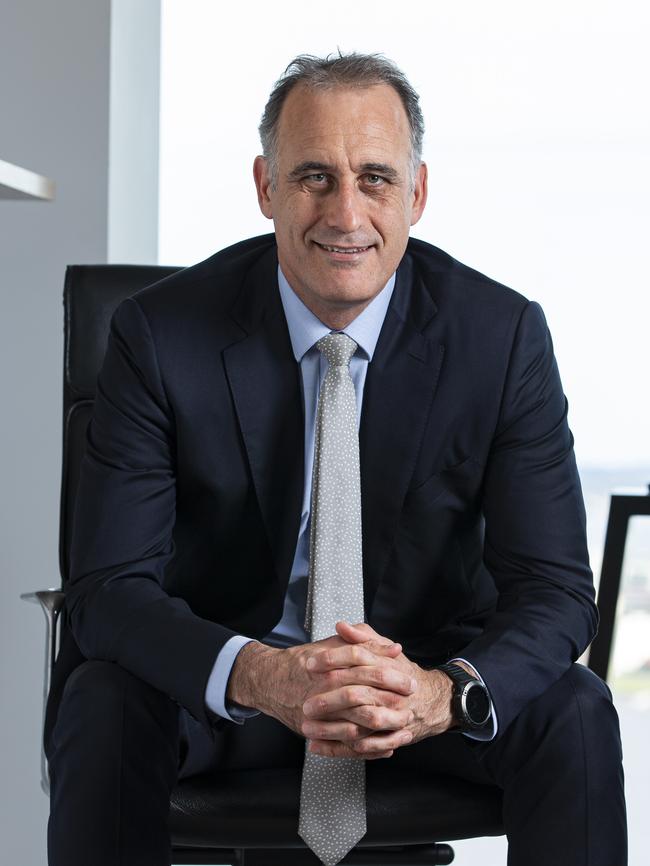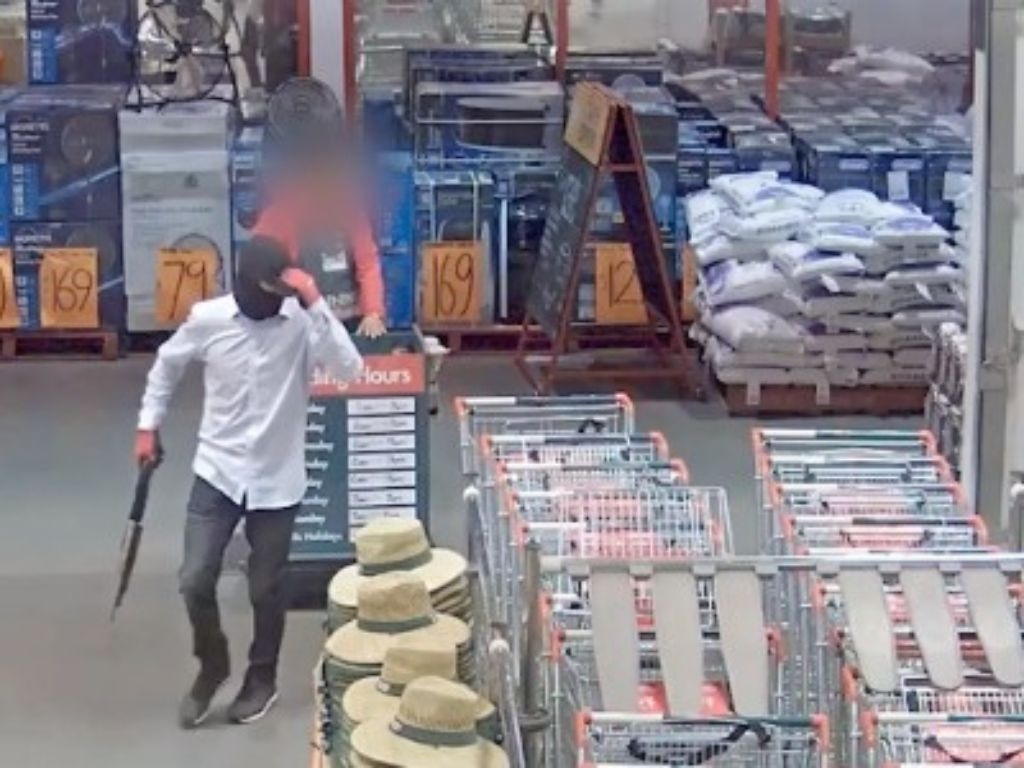Facial recognition ‘is a must to protect workers’: Wesfarmers boss
Wesfarmers chief executive Rob Scott says retailers should be able to use technology amid rising crime rates and large scale shoplifting.

Retailers should be able to use technology such as facial recognition to help protect their workers, as rising crime rates have meant more shoplifting and abuse of staff, Wesfarmers chief executive Rob Scott says.
“Crime is getting worse,” he told a roundtable hosted by The Australian and the Business Council of Australia. “It is not surprising, when people are doing it tough and feel like they are falling behind. We (retailers) should be able to better leverage technology in a responsible way to make our society safer – to make our workplaces, and the places where people go, safer.”
He said there was also “orchestrated criminal activity” involved in “large scale shoplifting” in stores.
Mr Scott said Wesfarmers, which owns retailer Bunnings, would be appealing a ruling from the Privacy Commissioner last week about its use of facial recognition in its stores to help prevent crime in their stores.
The retailer trialled the use of facial recognition technology in some of its stores in NSW and Victoria between 2018 and 2021, with Bunnings managing director Michael Schneider saying 70 per cent of incidents in the stores were caused by the same group of people.
Mr Scott said Bunnings had used the facial recognition technology only to help fight crime in its stores and was not using it to market to customers.
“At Bunnings, we were using facial recognition technology for the sole purpose of screening against a known list of around 300 criminals,” he said.

“Some of that data has been provided by police departments.
“We were using technology in a really constructive, responsible way, where it monitored people coming into the store against a known database of criminals.
“If there wasn’t a match with the database (of criminals), the data was deleted within the blink of an eye.
“There was no tracking of customers, there was no marketing to customers, but, unfortunately, it was deemed by the regulator to be a breach of privacy policy.”
Mr Scott, whose company also owns Officeworks, Kmart, Target, Soul Pattinson and Priceline pharmacies, said the move to block the use of facial recognition technology at Bunnings on privacy grounds meant “the regulatory focus has lost sight of the problem we’re trying to solve”, which was “a very high level of crime which occurs within the retail environment”.
His comments come as other employers including Coles chief executive Leah Weckert, the Australian Retailers Association and the Australian Chamber of Commerce and Industry have expressed concern about rising incidents of abuse against retail staff.

ACCI chief executive Andrew McKellar said the Privacy Commissioner’s determination on Bunnings’ use of the technology added “further confusion and complexity for employers trying to balance work, health and safety regulations with the changing legislation on privacy and the evolving issue of ‘consent’ ”.
He said new technologies, such as facial recognition, were a way of alerting retail staff of the potential risk of customers who had stolen goods or acted aggressively in stores in the past.
He said the review of the Privacy Act should aim to “bring the law into the 21st century”.
“This means setting the right conditions for using new technology to the advantage of all, including making the workplace safer for employees,” he said.
He said questions around the obligation to get consent from people being recorded was a key issue also being considered as part of the potential regulation of the use of artificial intelligence in Australia.
Mr McKellar said businesses such as Bunnings, which were faced with increasing security concerns, had a duty of care to protect their staff and people in the store.
Bunnings’ efforts to reduce the incidence of crime in its stores had been “undone by a technicality”, he said, telling the roundtable that shoplifting and abuse of staff was also inflationary as it pushed up the cost of doing business for retailers.
“We all pay for the consequences of physical harm, verbal abuse and shoplifting,” he said.
Mr Scott said crime was getting worse in Australia as the cost of living was going up while people faced increasing problems with health. “When I think about the 10 million people coming through our stores each week, they are starting to feel the pinch of cost-of-living pressures, the availability and affordability of housing,” he said.
There was also data showing that Australians were less healthy than they were before Covid, he said, adding that rising crime rates challenged the fabric of Australian society and reduced productivity: “I think we are at a tipping point.”






To join the conversation, please log in. Don't have an account? Register
Join the conversation, you are commenting as Logout